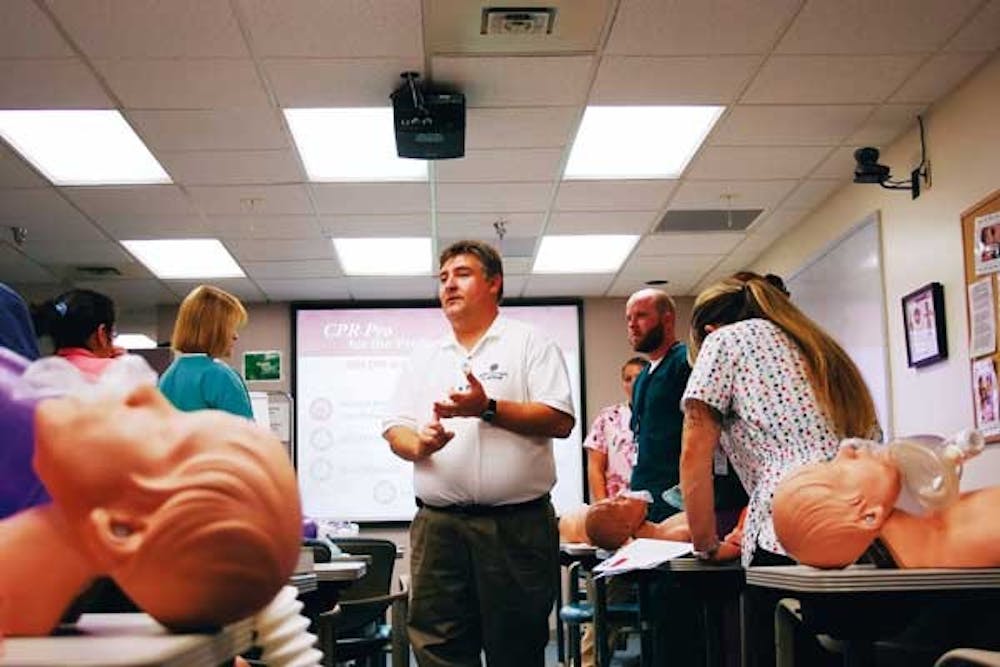by Brett Humbard
Daily Lobo
In a UNM Hospital basement, doctors get to practice procedures, but there are no patients involved.
Doctors, physicians and nurses at the hospital's BATCAVE - Basic Advanced Trauma Computer Assisted Virtual Experience - practice medical skills on robotic
mannequins.
Get content from The Daily Lobo delivered to your inbox
"If it's not realistic enough, then the physicians don't play along as well," said Luke Esquibel, an education specialist in the department. "Things are more advanced and
realistic."
The mannequins are hooked up to all of the machines a person would be, so participants can monitor the vital signs of their plastic patients during procedures.
The mannequins cost between $30,000 and $35,000. The department has eight, according to its Web site.
Esquibel said one mannequin in the BATCAVE simulates a woman delivering a child.
Another mannequin simulates a newborn in the Pediatric Intensive Care Unit, he said.
Each simulation has programs for different situations, such as cardiac arrest, Esquibel said. The simulations' operators can even include an unexpected situation the physicians may not be prepared for, said Dawn Joseph, an operator in the department.
"Here, with the SIM Baby, I can control what the vitals are of the mannequin and change them accordingly," Joseph said.
Nivine Doran, an anesthesiologist, said she prepares the simulators for each procedure.
"Before the simulator can be run, I have to consult with the technicians to make sure the levels of medications are correct for each situation," she said.
A team of physicians then takes the floor and performs a procedure, Doran said.
Esquibel said each step of the procedure will change the vital signs of the mock patient, and if a mistake is made, it can be corrected or reviewed after the
session.
"It is a well-rounded clinical experience," said James Harding, a doctor in the department. "We use the facility to practice crisis management in a safe environment away from real patients."
Esquibel said the training is essential for the doctors and nurses at UNM Hospital.
"Humans are irreplaceable." he said. "The simulators and parts can be replaced. In real life, if you make a mistake, you can't go back. Here, you can."






